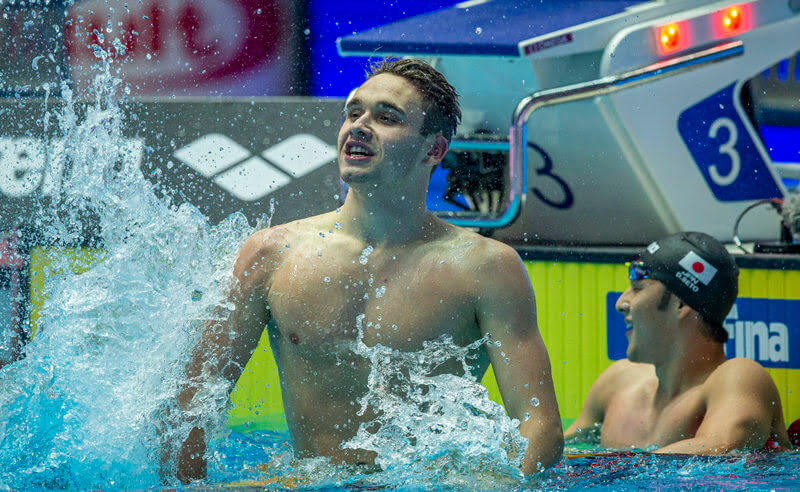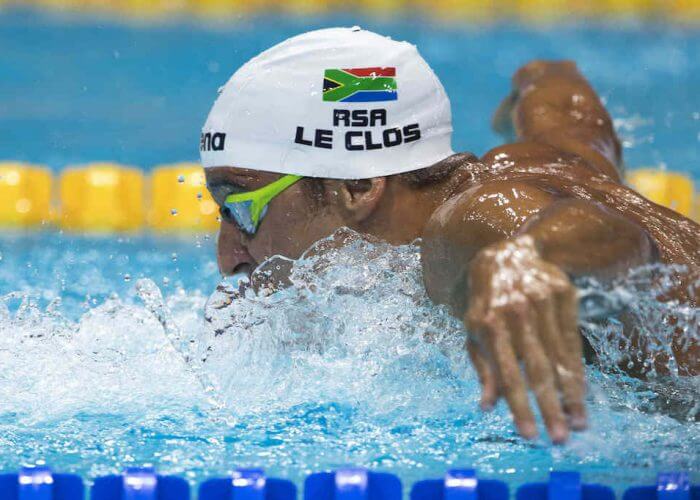Tokyo Vision: Kristof Milak Searching For Olympic Gold to Herald His Own 200 Fly Reign

Tokyo Vision: Kristof Milak Searching For Olympic Gold to Herald His Own 200 Fly Reign
Had the COVID-19 pandemic not shaken the world, the 2020 Olympic Games in Tokyo would be unfolding right now, titles and podium finishes earned by the finest athletes from around the world. Instead, we are in a competition lull and hopeful that the Games will be held next summer, with COVID-19 neutralized.
As we reach the nine days over which the swimming competition of a delayed Olympiad would have taken place, Swimming World is taking a glimpse at what might have unfolded this summer, had the Olympics not been postponed. Following the official schedule, we offer our virtual fields of eight finalists for each event and take a brief look at how the racing might have panned out until a few strokes away from decision and a result that will not be known until July/August 2021.
League of Olympic Legends: Michael Phelps Tops 200 Butterfly Podium With Spitz & Gross
Event: Men’s 200m Butterfly
World Record: Kristof Milak (2019) – 1:50.73
Historical Note #1: Michael Phelps is synonymous with the 200 fly. The American won three golds and one silver medal in his signature event before bowing out after Rio 2016. Phelps became the youngest male world record-holder when he set a new mark in the 200 fly aged 15 years, nine months in 2001. He also won five world titles in the event, the last coming at Shanghai in 2011. Chad Le Clos caused one of the biggest upsets in the pool in living memory when he beat Phelps on the final touch at London 2012.
Historical Note #2: Michael Gross stood 6-feet-6 with a wingspan of 6-feet-9 that earned him the nickname of ‘The Albatross’. The German dominated the 200 fly from 1981 to 1988, during which time he set four world records. At Los Angeles 1984, Gross won the 200 free and 100 fly, both in world-record time, and was expected to triumph in the 200 fly. However, he was beaten by Australian Jon Sieben. Four years later, though, he claimed the prize that had eluded him by winning the 200 fly in Seoul.
Virtual Vision
The Finalists (Listed Alphabetically)
- Federico Burdisso – Italy
- Nao Horomura – Japan
- Tamas Kenderesi – Hungary
- Denys Kesyl – Ukraine
- Chad Le Clos – South Africa
- Kristof Milak – Hungary
- Daiya Seto – Japan
- Luca Urlando – United States
The Race

Photo Courtesy: Marco Alpozzi /LaPresse
When Kristof Milak produced a seismic 200 butterfly in Gwangju in 2019 to set a new world record and end Michael Phelps’ 18-year reign at the top of the helm, silver medalist Daiya Seto leaned back and applauded, such was the magnitude of the Hungarian’s performance.
The pair were reunited in Tokyo for what promised to be a fascinating tussle with youth shining bright. Milak, at 21, was joined by 18-year-old Luca Urlando – who won the world junior title weeks after Gwangju – and Federico Burdisso, now 19 and who had finished third at the 2018 European Championships, aged 16.
Chad Le Clos, the 2012 champion, went out like a rocket down the opening 50, turning first with a clear lead over Milak and Seto. The South African was still ahead at the halfway point but Milak was closing with every stroke, the Hungarian looking ominous. Behind the two of them were Urlando, Burdisso and Seto.
Milak pulled out another sub-29 split on the third 50 and was well ahead at the final turn but behind him there was a battle royale. Le Clos was still in second but Seto started moving through the gears with Burdisso and Urlando also coming fast, and Nao Horomura putting in a challenge. Denys Kesyl was still in the mix with Tamas Kenderesi.
Was a Milak victory a foregone conclusion and would he again make history? Would Le Clos again make the podium or did his early pace take too much out of him? Who would make the podium and who would miss out?



